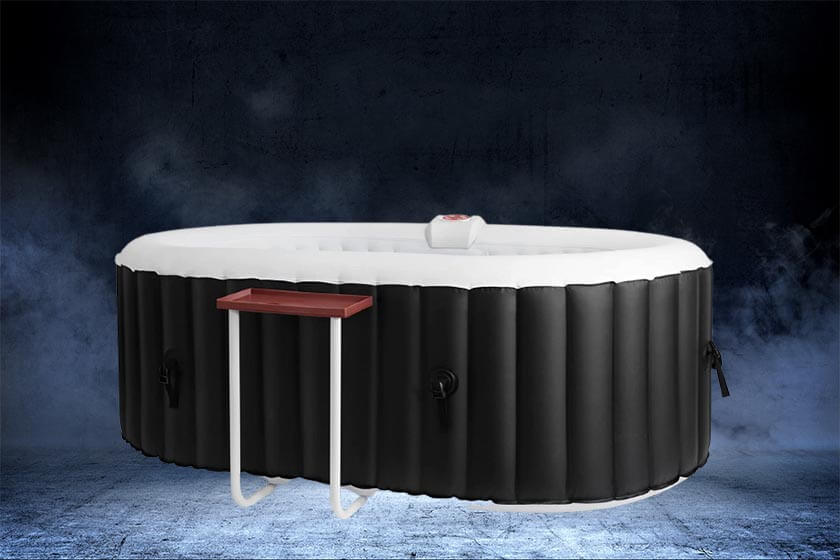How long is too long in a hot tub? What happens if you stay in a hot tub too long? If you’re a regular bather and spend lots of time soaking in the tub, you might be familiar with this scenario: There you are, stretched out in the hot tub enjoying the heat when all of a sudden you notice something strange. The water is cooling down! It’s not just your imagination—the temperature really has dropped.
What just happened? The hot water you came in with has been lost to evaporation. It turns out there is a specific amount of time spent in a hot tub recommended for maximum relaxation. It’s about 21 minutes.
The average person can only tolerate being in a hot tub for 15 minutes until the body starts to suffer the effects of a heat-related injury.
In fact, we’ve all heard the cautionary tales of people spending too much time in a hot tub and getting burned in some way.
So what is the correct amount of time you should spend in a hot tub?
The answer varies based on who you ask. Some people recommend as little as five minutes, but others insist that 30 minutes is the correct answer. So what gives?
See also: M spa inflatable 6 person hot tub Tekapo review: What makes it desired?
The truth is, there’s no definitive answer.
The research we’ve done here at the SWIMMINGPOOL A2Z SOLUTIONS and the knowledge we’ve gathered from around the industry can help us understand this question. And while we may not have the final word on how long you should be in that hot tub, there are a few key takeaways that might help you prolong your soak.
What are the risks of staying in a hot tub too long?
What are the risks of staying in a hot tub too long? Why can’t you stay in a hot tub long? We’ve all been there—relaxing in a warm bath when suddenly you take a look around and realize things have gone too far. Your fingers have become prunes, and your skin has turned a weird shade of red. You’re staying in the hot tub too long!
You may be asking yourself, “How long can I stay in a hot tub before it becomes dangerous?” For many, the answer is an hour. Others may be able to stay in the tub for up to two hours. But even if you’re not a seasoned veteran of the hot tub, there are ways to tell when you’ve been sitting in water for too long.
In most hot tubs, there is a “thermistor” connected to the hardwired heating system. This thermistor monitors the temperature of the water.
Is staying a long time harmful?
What are the risks of staying in a hot tub too long? Swim spas have been growing in popularity over the past few years. They are a great way to relax in the privacy of your own home, especially for those individuals who don’t have time to go to the gym or visit a spa.
Swim spas are designed for maximum comfort and convenience. The heaters inside them are designed to be left on for extended periods. For this reason, you should never stay in your swim spa for more than thirty minutes. After that, it’s time to hop out!
See also:Intex purespa greywood deluxe inflatable 4 person spa review
Why is this? What are the disadvantages of staying long?
Swimming in warm water may make you feel relaxed and pleasant, but too much of it can make you sick. And keep in mind that warm water might make you colder than normal water would because your body needs to use so much energy to get rid of the excess heat.
Skin burns
What happens if you stay in a hot tub too long? Many people spend too much time in the bathtub. Experts say that it is because they are not aware of the risks, especially to the skin.
See also: Essential Hot Tubs 30-Jet 2020 Adelaide Hot Tub review: Is it Unbeatable?
The prolonged contact with hot water can burn the skin, and when you get out of the tub, you may still feel a sensation of heat. This can cause burns and also irreversible damage. When you get out, don’t be in a rush. Let your skin gradually adapt to the hot temperature and avoid sudden movements.
Let’s keep in mind that although water usually is not scalding, it can reach temperatures between 80 and 100 degrees Celsius. This can cause serious burns if an area is subjected to it for extended periods.
See also:
